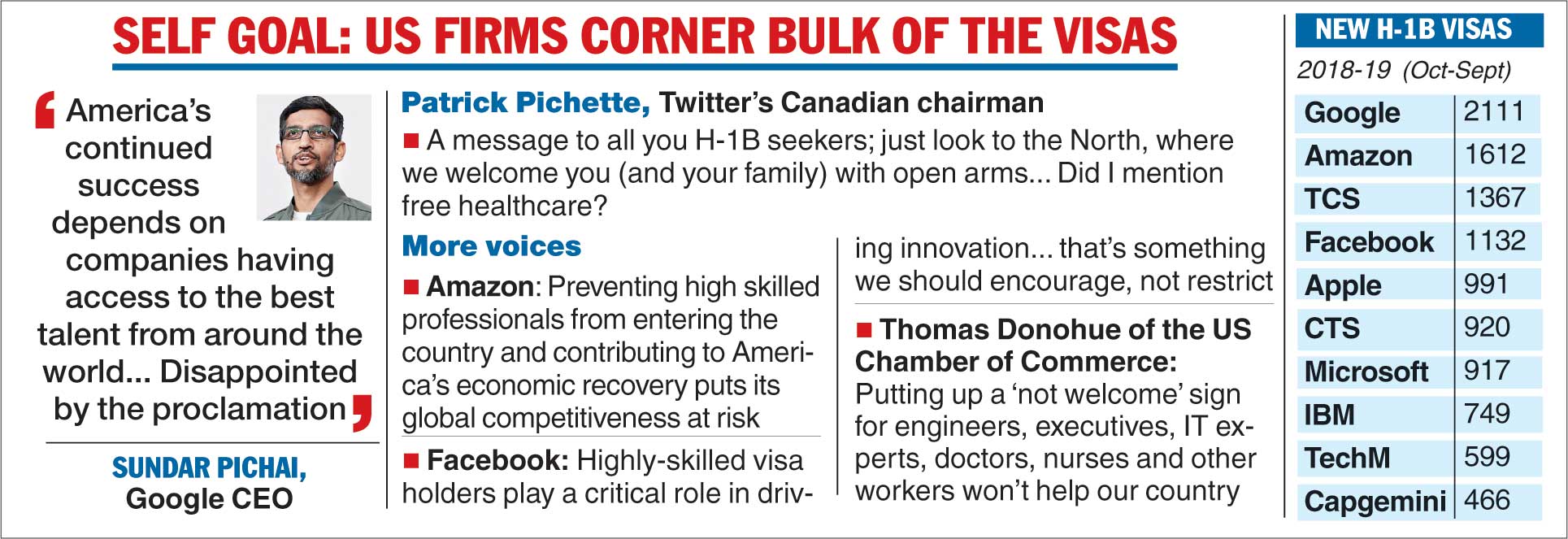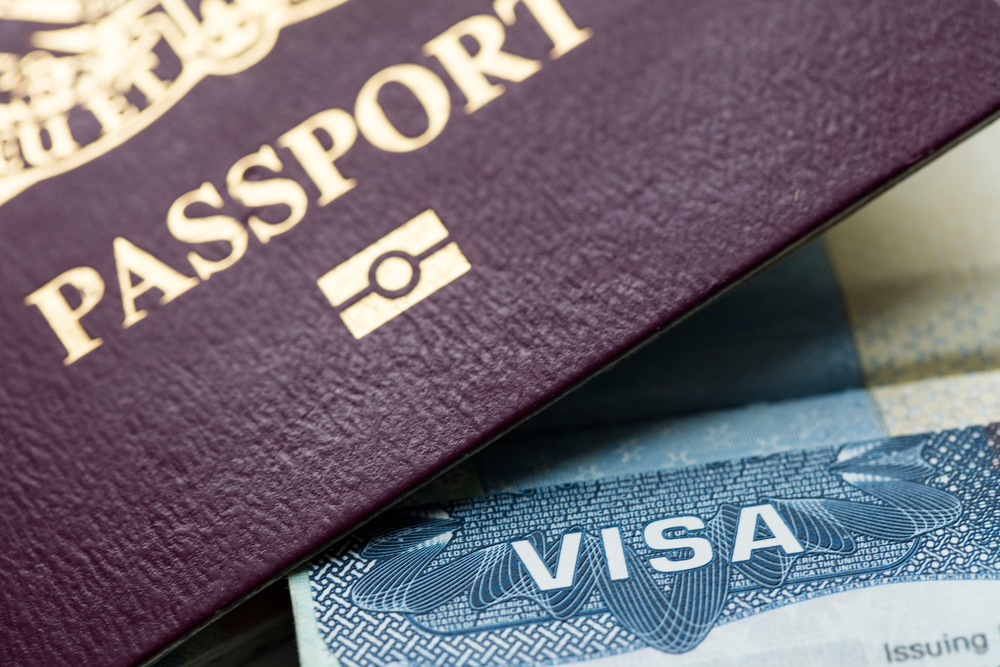President Donald Trump suspended the entry into the United States of certain foreign workers on Monday, a move the White House said would help the coronavirus-battered economy, but which business groups strongly oppose.
Trump issued a presidential proclamation that temporarily blocks foreign workers entering on H-1B visas for skilled employees, and L visas, for managers and specialised workers being transferred within a company. The visa suspension, which takes effect on Wednesday until the end of the year, will open up 525,000 jobs for US workers, a senior US administration official said on a call with reporters.
The US move has sparked dismay in the Indian tech industry. Indian IT industry’s apex body Nasscom has criticised the the order saying it is “misguided and harmful to the US economy…We urge the administration to shorten the duration of these restrictions to 90 days. Lengthening these burdensome restrictions on US companies that are trying to recover from the economic fallout of the Covid-19 pandemic will only serve to harm the economy.”

“Finally, we hope that the administration will rethink its stated plans to move forward on a series of regulatory changes that would place additional restrictions and costs on visa programs while doing little more than amplifying the harm already being done to the US economy,” it added.
The decision will impact a large number of Indian IT professionals and several American and Indian companies who were issued H-1B visas by the US government for the fiscal year 2021 beginning October 1.They would now have to wait at least till the end of the current calendar year before approaching the US diplomatic missions to get stamping. It would also impact a large number of Indian IT professionals who are seeking renewal of their H-1B visas.
The H-1B visa is a non-immigrant visa that allows US companies to employ foreign workers in specialty occupations that require theoretical or technical expertise. The technology companies depend on it to hire tens of thousands of employees each year from countries like India and China.
In April, Trump signed an immigration proclamation targeting people outside of the US seeking to legally migrate to the US, with some exceptions. That order, which was set to lapse, will be extended until the end of 2020 and expanded to include some guest worker visas. The new visas included are L-1 visas for intracompany transfers, H-1Bs for workers in specialty occupations as well as the H-4 visa for spouses, H-2Bs for temporary non-agricultural workers and most J-1 visas for exchange visitors.
The new rules would apply only to those who are outside the US, do not have a valid non-immigrant visa and an official travel document other than a visa to enter the US.











